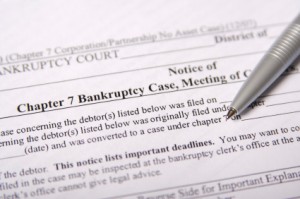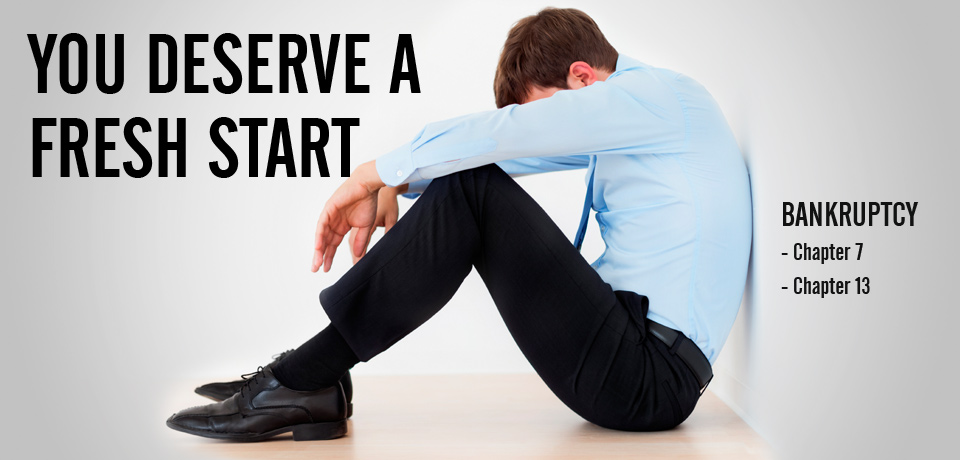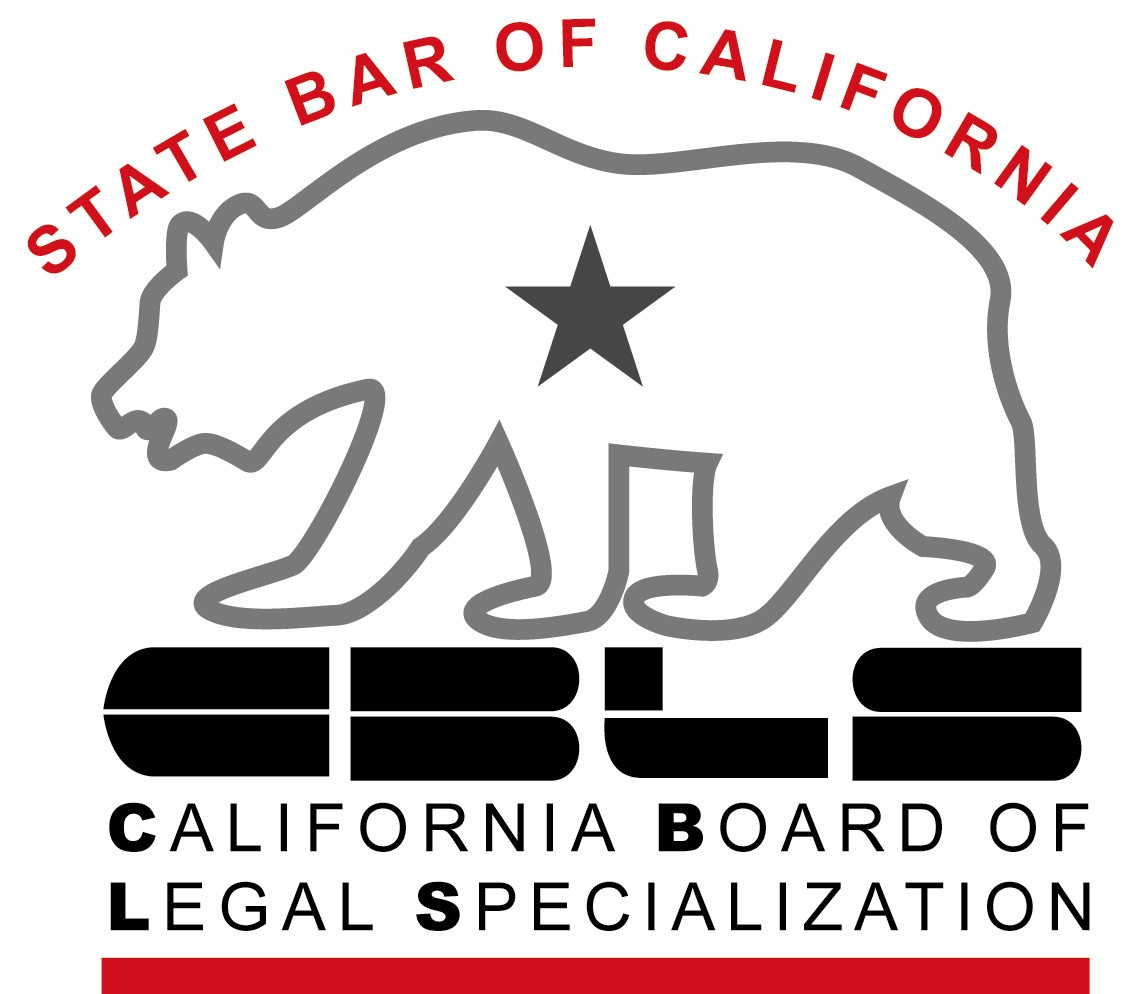CHAPTER 7 BANKRUPTCY
Bakersfield Bankruptcy Attorney
Chapter 7 Bankruptcy is some times referred to as “straight bankruptcy” or “liquidation bankruptcy”. The overall concept behind chapter 7 bankruptcy is that the trustee who is assigned by the bankruptcy court will liquidate or sell all of the person’s assets and in turn use these funds to pay off debts, and  whatever debt is still left will be forgiven or discharged. However in most cases, most people who file a Chapter 7 Bankruptcy in Bakersfield petition retain all of their assets due to the availability of exemptions that protect certain assets from liquidation.
whatever debt is still left will be forgiven or discharged. However in most cases, most people who file a Chapter 7 Bankruptcy in Bakersfield petition retain all of their assets due to the availability of exemptions that protect certain assets from liquidation.
Chapter 7 bankruptcy is by far the most popular type of bankruptcy proceeding for individuals in Bakersfield. Any individual residing, domiciled, or having property or a place of business in the United States may file a Chapter 7 bankruptcy. To be eligible, the person must have received a credit counseling briefing from an approved agency prior to filing for bankruptcy. In very limited circumstances a Chapter 7 case may be dismissed by the court for “abuse” if the court believes the person has the ability to repay creditors, and the person’s income is subject to a “means test” to determine whether there is a presumption of abuse due to the ability to repay creditors.
Chapter 7 Bankruptcy Process
A Chapter 7 case begins with the consumer filing a petition with the bankruptcy court in Bakersfield, or the court serving the area where the person lives. In addition to the petition, the person must also file with the court several schedules which detail the consumer’s assets, debts, income, expenditures and certain other details about the person’s financial affairs, as well as the results of the means test, if applicable. The filer must also provide the assigned case trustee with a copy of the tax return or transcripts for the most recent tax year as well as tax returns filed during the case (including tax returns for prior years that had not been filed when the case began).
The court must charge a case filing fee, a miscellaneous administrative fee, and a trustee surcharge (the total filing fee is around $300). Normally, the fees must be paid to the clerk of the court upon filing.
Among the schedules that an individual will file is a schedule of “exempt” property. The Bankruptcy Code allows an individual to protect some property from the claims of creditors because it is exempt under federal bankruptcy law or under the laws of the person’s home state.
Filing a petition under chapter 7 “automatically stays” (stops) most collection actions against the person or the person’s property. The stay arises by operation of law and requires no judicial action. As long as the stay is in effect, creditors generally may not initiate or continue lawsuits, wage garnishments, or even telephone calls demanding payments.
Between 20 and 40 days after the petition is filed, the trustee assigned by the court will hold a “meeting of creditors”. During this meeting, the trustee will be sworn under oath, and both the trustee and creditors attending the meeting may ask questions (in most cases very few creditors will ever attend this meeting). The individual filing for bankruptcy in Kern County, or any County in the United States, must attend the meeting and is subject to answering questions regarding their current financial affairs and assets including property.
A date fixed 60 days after the meeting of creditors is the last date that a creditor may object to the consumer’s bankruptcy filing. If there are no objections, the court will generally issue a discharge and close the bankruptcy case shortly after the expiration of this 60 day period.
Means Testing
Prior to October of 2005, any individual could file for bankruptcy protection under Chapter 7 of the Bankruptcy Code so long as the filing was made in “good faith” and was not an abuse of the Bankruptcy Code. There was no means testing to determine eligibility. For cases filed after October 2005, consumers must pass a “means test” or risk dismissal of their case as an abusive filing. The purpose of the means test is to determine whether the person has the ability to repay his unsecured creditors.
Learn More About The Means Test – Click Here
What debts will be “forgiven” or discharged?
Not all debts are zeroed out after file for Chapter 7 Bankruptcy. Certain debts cannot be discharged for example; it its virtually impossible to have student loans or back child support discharged. Other non-dischargeable debts include: alimony, specific taxes, pre-petition fines and restitution orders, debts from injury or death due to alcohol or drug use, and some condo and coop fees.
Remember, each chase is different. We will go over your personal debt issues during our consultation to better inform you of what will and will not be forgiven.
Chapter 7 Bankruptcy Frequent Asked Questions
How much does it cost to file for bankruptcy?
It depends on the complexity of your situation. A simple single person consumer, no -asset case is charged as a flat fee. The current filing fee paid to the Bankruptcy Court for Chapter 7 is $335. In some situations, you can pay the filing fee in installments or have it waived completely.
How long does the bankruptcy process take?
From the time your case is filed, to the time you get your discharge, the minimum is approximately 100 days. Your case can take longer in the very unlikely chance that someone contests your bankruptcy or if assets are sold during the Bankruptcy process.
Do I go to Court?
In most cases, no. You will go with your attorney to a ‘meeting of creditors’ where you will meet with a Bankruptcy trustee. He or she will ask questions pertaining to your case. As part of the fee paid to this office, we will prepare you completely for the meeting of creditors. There will be a room full of people, however those people for the most part are others who have filed, who are just as nervous as you. Do not lose any sleep over this! Your turn in the ‘spotlight ‘ is usually only a few moments.
What is credit counseling?
You are required to take two courses of instruction pertaining to credit assessment and debt management. They can be taken in person here in Bakersfield, on the telephone, or on the Internet. Each class takes about an hour. The Internet classes remind me of on-line traffic school. They are interactive, and at the end you talk to counselor for a few minutes. The cost, which is not part of the fee you pay this office, is around $25 per class.
How often can one file for bankruptcy?
Eight years after the last date you filed.
Do I meet with an attorney?
Yes. Your initial consultation is always with me. Thereafter, depending on your case, we may meet again before the case is filed, and at the time your paperwork is signed. I always attend the meeting of creditors with you, unless in the very rare circumstance that I am gone, then another attorney will be present with you.
Where do I file for bankruptcy?
The Bakersfield division of the Bankruptcy Court covers all of Kern and Inyo Counties. I represent clients residing in Bakersfield, Taft, Maricopa, Buttonwillow, Wasco, McFarland, Shafter, Delano, Frazier Park, Lebec, Tehachapi, Mojave, Ridgecrest, California City, Bishop, Lone Pine and all other parts of Kern and Inyo Counties.
Consult an Experienced Bakersfield Bankruptcy Attorney
Our office can assist you in determining whether bankruptcy is the right choice for you, and which chapter under the Bankruptcy Code would provide you with the most relief. To schedule a free consultation with a knowledgeable lawyer about filing a Chapter 7 bankruptcy in Kern County, please call our office today at 661-864-7373.
FREE CASE EVALUATION
Chapter 7 Bankruptcy
Chapter 7 allows you to discharge your debt and most often keep your home and other assets.
Chapter 11 Bankruptcy
Chapter 11 Bankruptcy allows your business to remain in operation and retain control over most or all of your assets.
Chapter 13 Bankruptcy
Chapter 13 is an option if you can’t file Chapter 7 and/or wish to pay taxes or catch up your house payment.





